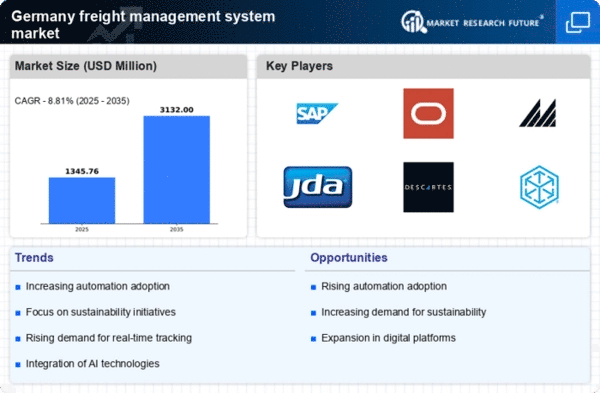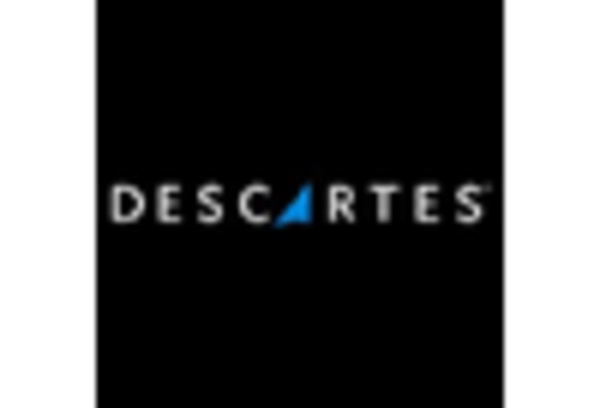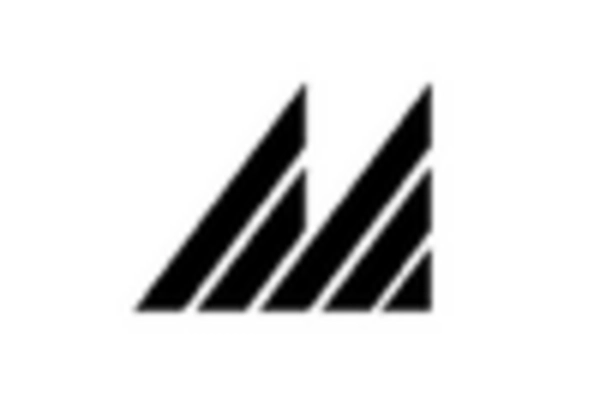E-commerce Growth
freight management system market As online shopping continues to gain traction, logistics companies are increasingly required to optimize their supply chains. In 2025, e-commerce sales in Germany are projected to reach approximately €100 billion, necessitating advanced freight management solutions to handle the surge in demand. This growth compels businesses to adopt sophisticated systems that can efficiently manage inventory, track shipments, and ensure timely deliveries. Consequently, the freight management-system market is likely to experience heightened demand as companies seek to enhance their operational efficiency and customer satisfaction.
Rising Fuel Costs
Fluctuating fuel prices are a significant concern for logistics companies in Germany, directly impacting the freight management-system market. As fuel costs rise, companies are compelled to seek more efficient transportation solutions to mitigate expenses. In 2025, it is projected that fuel costs will account for approximately 30% of total logistics expenses, prompting businesses to invest in freight management systems that optimize routing and load planning. By enhancing operational efficiency, these systems can help companies reduce fuel consumption and overall transportation costs, thereby driving their adoption in the market.
Regulatory Compliance
Stringent regulations governing transportation and logistics in Germany significantly influence the freight management-system market. The European Union has implemented various directives aimed at improving safety, environmental standards, and data protection. Companies must ensure compliance with these regulations to avoid penalties and maintain their operational licenses. As a result, there is a growing need for freight management systems that can facilitate adherence to these complex regulations. In 2025, it is estimated that compliance-related investments in logistics will account for around 15% of total operational costs, underscoring the importance of robust freight management solutions in navigating regulatory landscapes.
Technological Advancements
freight management system market Innovations such as IoT, blockchain, and advanced analytics are transforming how logistics operations are conducted. In Germany, the adoption of these technologies is expected to enhance visibility and efficiency within supply chains. By 2025, it is anticipated that over 60% of logistics companies will integrate IoT devices into their operations, allowing for real-time tracking and improved decision-making. This technological shift not only streamlines processes but also drives the demand for sophisticated freight management systems capable of leveraging these advancements.
Consumer Demand for Transparency
Increasing consumer expectations for transparency in the supply chain are shaping the freight management-system market. German consumers are becoming more discerning, seeking real-time updates on their orders and the environmental impact of their purchases. This trend compels logistics providers to implement systems that offer enhanced visibility and traceability. By 2025, it is estimated that 70% of consumers will prioritize companies that provide transparent supply chain information. Consequently, freight management systems that facilitate this level of transparency are likely to see increased demand, as businesses strive to meet evolving consumer preferences.
















